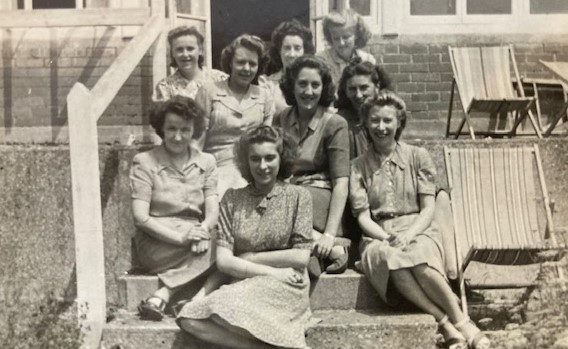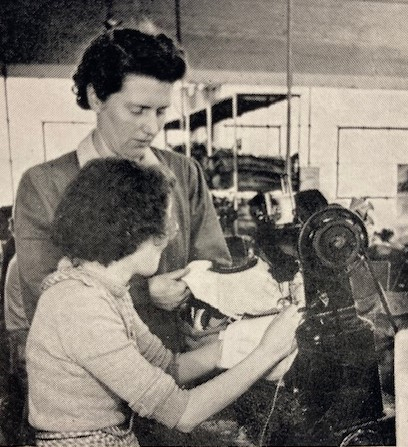The forewoman was quite strict, but she was fair and strict. But then, she had to be.
[Rosemary, Morlands]
You’d find the jobs in the offices as well as out on the factory floor were very gender segregated, they really were. None of the high-profile jobs out on the work floor were done by women. All the coat-cutters were men, and they were the most prized of the lot – and they were very skilled men, they really were. But most of the women’s jobs really were doing the sewing, working on the machines.
[Julia, Morlands]
Walking through the cutting room, where those men – and they were mostly men – I’m not joking, used to work with such sharp knives. Their eyes were never on the work they were doing! It was across the room: somebody’s legs, somebody’s hair, something. There were always jokes, always comments. Honestly, some of the things that we used to have to suffer – especially as younger girls – walking through these departments. Today it’s considered very very ‘no no’ but in those days it was part of life.
[Rosa, Morlands]

Photo: Bev Coggins and Sue Ford
It’s a strange thing, they seemed more caring with the male part than they did with the female part. Now, whether it’s just because they didn’t know how to…They were very generous though, because when I got married they gave me a whole bedroom suite as a wedding present.
[Julia, Morlands]

Photo: Morlands Magazine, Spring, 1953
There was a junior who I was training up,and when it came to the Christmas bonus, he was getting five pounds more than I was. I was getting ten pounds, he was getting fifteen. And I said, I’ve been here all these years and I’ve got all this responsibility, and I’m getting five pounds less than this other person? Yeah well, cos you see he’s a man. I said, he may well be a man, but he hasn’t got the experience that I’ve got in this department, and I think this is completely wrong.
[Gloria, Baily’s]

